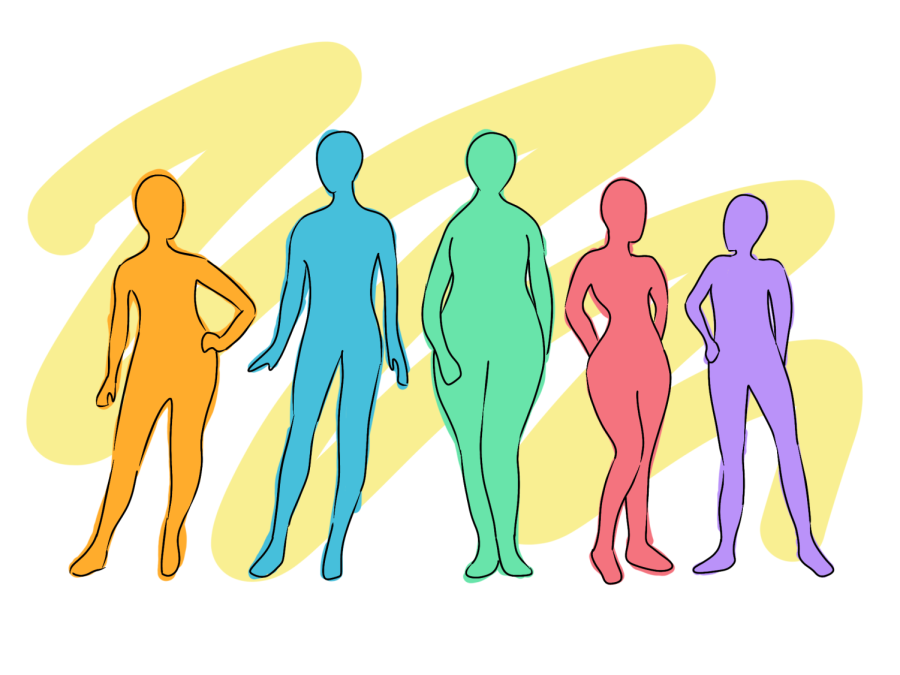Body shaming, worsened by social media, needs to stop (Opinion)
Body shaming is a form of bullying, and it has become easier as social media has become more accessible
Some are too quick to judge others based on appearance. We need to drop our stigmas and embrace diversity in body types.
May 18, 2022
This article contains discussion of bullying based on body type as well as briefly mentions resulting restricted eating and dieting. Reader discretion is advised.
Teenagers have constant access to multiple platforms of social media. As we’ve seen as a society throughout the last few years, people can easily hide behind these platforms to cyberbully others.
One common topic that teens are bullied on social media for is their bodies. Body shaming affects people in different ways — it can make anyone, not just teens, feel insecure about themselves and how they look.
Some cyber bullies are teenagers that are already self conscious about themselves. They use technology to take it out on others so that they can feel better about their own self image.
A popular influencer, Lizzo, openly shuts down body shaming on her social media pages. She is known as one to love herself and others as they are. As a society who has access to Snapchat, Instagram, Facebook, and TikTok, I’m sure many of us have seen comments being made about peoples’ bodies.
Body shaming doesn’t only happen with teenagers, but with adult men and women, children, and elderly people — basically any living person can be targeted. When children especially are told things like “you don’t need another snack, you’re getting chubby “ or “that shirt is getting too tight for your bigger figure”, little kids can take those words to heart, and it can negatively impact their self esteem.
Body shaming is defined as the act of making negative comments about someone’s weight, size, height, or any other physical attribute. This is mostly directed towards people with bigger body types and sizes because society portrays unrealistically thin and skinny body types as inherently better and healthier, which isn’t always the case.
Historically, paintings and portraits before the 1800s era include women with more qualities of plumpness. Being heavy-set was a sign that a person was wealthy and had the money for food. Being skinny was a sign of poverty.
Nowadays, some think being “fat” or “chubby” is unattractive. Society expresses this by commenting under their breath, leaving hateful words on social media, or even saying it to someone’s face. This has caused insecurities, and it needs to stop.
This is also why some teenagers end up on strict, unhealthy diets and overworking regiments. Not only does it affect pre existing insecurities, but this kind of hyper-fixation on getting thinner can contribute to mental health issues.
Body shaming connected with mental health issues can lead to depression, overthinking, anxiety, and so much more. It also contributes to the general feeling of hating your own body, and it encourages people to not love themselves as they are.
Make sure to do your part to stand up to body shaming and hate when you see it. As a society, we need to move past publically or privately shaming teenagers and others for their bodies and embrace that “healthy” looks different for everyone.


